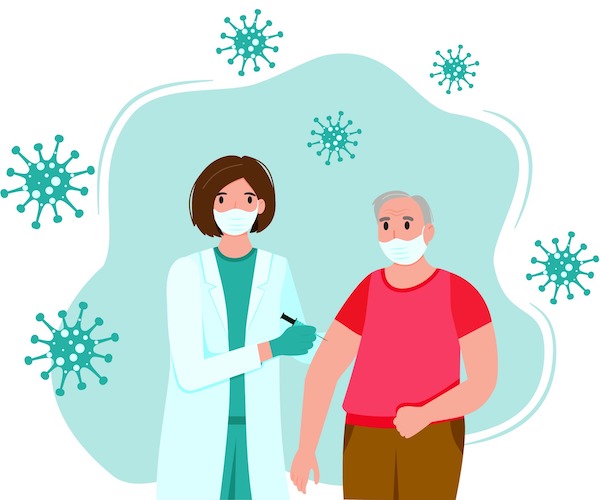
Navigating Comprehensive Primary Care: An In-Depth Resource
Understanding the scope and value of primary care, including preventive services, chronic condition management, and care coordination. This read highlights how regular primary care supports early detection, personalized treatment plans, and stronger clinician-patient communication. The guide also outlines what to expect during visits, how primary care integrates with specialists, and why building a continuous care relationship can improve overall health, access, and long-term outcomes.
What is primary care?
Primary care is a diverse medical field specializing in the diagnosis and treatment of a wide range of medical conditions, especially crucial for seniors on Medicare. Primary care providers also arrange important tests and laboratory monitoring for the prevention and early detection of many common illnesses. The role of a primary care physician is to develop a long-term relationship with their patient and help manage the multitude of health-related issues throughout their patients’ lives.
Primary care provides first-line treatment for all non-emergent medical conditions and helps coordinate care for their patients. Primary care physicians will manage acute and chronic conditions and provide referrals to appropriate specialists when needed.
Importance and Benefits of Senior Primary Care in Healthcare
Senior primary care can improve patient access to necessary health services and obtain specialty care when needed. Primary care practitioners help their patients navigate the complexity of chronic medical condition management, reduce disease risk factors, and improve their overall wellness.
The need to have a primary care provider is becoming more important as many health insurance plans, including Medicare, require a primary care referral to see a specialist. Senior primary medicine can benefit you and your family by helping achieve an improved quality of life and a longer, healthier life while reducing the overall cost of medical care.
Types of Primary Care Services
Primary care covers a range of health services including the prevention, diagnosis, and treatment of common medical conditions. The type of training (i.e., family practice, internal medicine, etc.) determines the age range certain physicians will treat but many primary care clinics perform the following services.
General/Routine Check-ups
This service pertains to annual physicals and routine follow-ups. These appointments are geared toward reviewing your overall health, evaluating current medications, obtaining labs, and accessing disease management. Depending on your medical conditions, these may occur once a year or more frequently.
Preventive Care
Preventing and the early detection of diseases are two of the most important aspects of medical care. Primary care physicians arrange certain tests and labs to be obtained as recommended for the prevention/detection of diseases such as colon, breast, and prostate cancers.
Chronic Disease Management
Chronic care management is designed to help patients with two or more chronic conditions navigate the complexities of managing long-term diseases.
Pediatric Care
Family medicine, pediatrics, and Med-Peds specialists provide wellness checks and manage acute and chronic diseases for pediatric patients (individuals under the age of 18).
Women’s Health
Specialized care for women of all ages is available through primary care providers such as family medicine or obstetrics-gynecology physicians. These practitioners manage many health conditions for females including pregnancy and childbirth.
Men’s Health
Specific issues can arise during a man’s life and our primary care providers can help manage these conditions with expertise. Our licensed primary care physicians can treat and monitor many health conditions affecting men and provide referrals when needed.
Role of a Senior Primary Care Physician
A senior primary care physician serves as the entry point to the healthcare system and provides continuing care for senior patients throughout their lives. The responsibilities of a primary care provider consist of:
- Health promotion
- Disease prevention
- Health maintenance
- Counseling and patient education
- Diagnosis and treatment of acute and chronic illnesses
Qualifications and Training of Primary Care Physicians
All primary care doctors will have received a 4-year undergraduate degree consisting of certain pre-medical courses such as chemistry and biology. Upon completion of their bachelor’s degree, they will attend 4 years of medical school which provides them with medical training in all specialties. Following medical school, primary care physicians will enroll in a residency program in family medicine, internal medicine, pediatrics, or gynecology lasting three years or more. Some practitioners will attend a fellowship after residency for additional training in a specific area of medicine.
How to choose the right primary care physician
While choosing a primary care physician is a personal choice, these are some important characteristics to consider.
- Convenience. A conveniently located office reduces the hassle of attending appointments and seeking treatment when sick.
- Responsiveness. A physician who is prompt in responding and following up on patient-related issues.
- Expertise meets your health needs. Choosing a doctor that meets your or your family’s health needs is essential.
- “In-Network” providers. Check with your health plan to see if the clinic’s practitioners are considered “in-network” to avoid any surprise charges or uncovered medical expenses. Ensure the clinic has primary care doctors who accept Medicare if that is your primary insurance.
Benefits of Regular Senior Primary Care Visits
Staying on top of your health by attending regular senior primary care visits is important for both preventative and maintenance care. Scheduling regular doctor visits allows patients to preemptively seek medical care and obtain guidance on living a healthy lifestyle.
Early detection of health issues
Preventative care has become increasingly important for seniors on Medicare as improved outcomes are associated with the early detection of diseases. Once life-threatening conditions can now be managed and treated leading to a longer, healthier life.
Obtaining regular screenings such as colonoscopies, mammograms, and other preventative tests plays an important role in the early detection of cancers and other serious medical conditions. Additionally, many serious diseases can be avoided through the completion of important vaccination schedules.
Continuous health monitoring
Unlike acute illnesses, chronic medical conditions require frequent monitoring and life-long medications and lifestyle modifications. In addition, monitoring for complications is important to improving one’s outcomes and quality of life.
Completing regularly scheduled tests can help physicians determine how well a disease is being managed, detect any side effects from medications, and provide recommendations for future treatment. This can identify worsening control of a particular disease and allow appropriate interventions to avoid expensive medical services. For this reason, regular follow-up with your primary care provider is associated with lower overall healthcare costs.
Personalized healthcare plans
Developing a personalized healthcare plan can help manage chronic diseases and ensure appropriate preventative screenings are performed. However, the success of these plans often requires regular monitoring and follow-up with your primary care provider. This allows your doctor to determine areas that need additional attention, as well as provide support for you and your family.
Chronic care management plans have additional perks such as a 24/7 nurse helpline, educational material discussing community resources, and support networks for specific diseases. Overall, these plans help to improve outcomes and reduce healthcare costs.
How to Choose the Right Senior Primary Care Physician
When searching for a senior primary care provider, it is important to consider these five items.
- “In-Network” providers. Health plans, including Medicare, negotiate contracts with various medical groups and these are considered “in-network” providers. To avoid any surprise charges or uncovered medical expenses, obtain a list of “in-network” providers in your area. Also if you have Medicare insurance, make sure the clinic has primary care doctors that accept Medicare.
- Physician’s expertise meets your healthcare needs. With several different types of primary care physicians available, choosing a doctor that meets your or your family’s health needs is essential.
- Referrals. Obtain feedback from family members, friends, and co-workers to see who they use as a primary care physician. This can provide you with first-hand knowledge about the provider before ever stepping foot in their office.
- Logistics. Choosing a doctor’s office near your home, work, or child’s school reduces the hassle of driving to appointments and makes it easier to get a quick check-up when you start feeling sick.
- Make an appointment. Set up an initial appointment to see the office in action and ensure you are comfortable with the primary care provider. If things do not work out, there is no harm in transferring care to a different physician.
Additional considerations when choosing a PCP
When selecting a primary care provider, the above criteria are very important to narrow down your search. However, some practices have additional perks to consider when making the final decision.
- Availability of telemedicine appointments.
- Professional and courteous staff.
- Convenient hours to meet your schedule.
- Access to a patient portal and electronic medical records.
- Review of additional providers in the practice.
Common Primary Care Procedures and Tests
Primary care physicians provide medical care to patients with acute and chronic medical conditions. When diagnosing, treating, and monitoring these medical conditions they use several different procedures and tests. Here we discuss some of the most commonly performed procedures and tests by PCP physicians.
Routine venipuncture for blood tests
Venipuncture is the act of drawing blood from the veins for use in many different tests. Physicians order blood tests routinely as part of your annual physical and in the management of acute and chronic conditions. They can also be used to monitor for side effects associated with certain medications and test blood levels to ensure you are taking the proper dosages.
Vaccinations
The development of vaccines has revolutionized modern medicine and has led to significant improvements in health outcomes. The enormous benefits of vaccinations have led to the development of a vaccine schedule by the Centers for Disease Control and Prevention (CDC). Primary care providers use these guidelines to improve the overall health of their patients leading to vaccinations being a very common procedure among providers.
Learn More: Immunizations in Senior Care: What Every Older Adult Should Know
Physical exams
During each appointment, primary care doctors perform physical exams to gain more information and assist in making the diagnosis. Although the exams performed will depend on the reason for the visit, in almost every situation a physical exam will be performed during the appointment.
Health screenings
As preventative health continues to play a larger role in primary care, physicians spend an increasing amount of time performing and referring patients for health screenings. These tests aid in diagnosing conditions early and improving outcomes. These tests commonly include colonoscopies, mammograms, pap smears, and prostate exams just to name a few.
Primary Care vs. Urgent Care vs. Specialist Care
With many different options to obtain medical care, it can be difficult to know where to go when certain health issues occur. Therefore, we will provide a basic guide as to which type of care should be sought in certain instances.
Primary Care
If the situation is not life-threatening or limb-threatening, the first step is to reach out to your primary care office to obtain their guidance for care. Primary care is the first-line treatment option for all non-emergency care; however, in some instances they may refer you to an urgent care especially when care is needed after normal business hours.
Urgent Care
Urgent cares are designed to provide high-quality, efficient care for many different non-emergent situations and can play an important role in providing care after primary care offices have closed. Common reasons to visit urgent care include cold and flu symptoms, minor injuries such as sprains and strains, and infections such as ear, throat, and urinary tract infections.
Specialist Care
While primary care providers will provide comprehensive medical care, certain situations will require care from a specialist. When this situation arises, your doctor will provide a referral to a specialist to provide assistance in managing your health condition.
Learn More: Primary Care vs. Specialist Care: When to See a Specialist
Scheduling an Appointment with a Senior Primary Care Physician
New patients of Complete Health, especially seniors on Medicare, can schedule an appointment by calling one of our primary care offices and one of our patient care specialists can get you registered and provide a list of available appointment options.
If you’re already a patient at our clinic, the patient portal can be used to schedule your next appointment. If you’re new to the patient portal, you’re welcome to create a new account using the easy-to-follow steps provided on the website. The patient portal provides you access to your care anytime and from anywhere. Or, if you prefer to call your local primary care office, our staff will be happy to assist you with scheduling your appointment over the phone.
What to expect during the first visit
During your first appointment, the focus will be on learning about you. Your primary care doctor will obtain information about your medical history, specific needs, and any concerns you may have so that future visits will be more personalized. A general physical exam will be conducted and depending on the reason for the visit, specific exams and tests may be performed.
Take Control Of Your Health
Senior primary care practitioners help patients navigate chronic medical conditions, reducing risk factors for diseases, and improving overall wellness. Primary care providers are associated with improving your and your family’s quality of life and helping their patients live longer, healthier lives while reducing the overall cost of medical care.
Experience the benefits of having a primary care physician in your corner to help ensure you are receiving the best possible care. Select one of our offices or doctors to experience a healthier, better you.
More Blog Articles
Stay informed with the latest health tips and medical insights from our healthcare professionals


